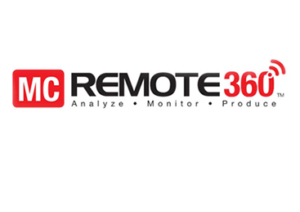Compliance/ Complaints
Chapter 1 — General Provisions
Article 1 (Objective)
This policy sets out the basic principles governing the compliance organization and implementation and administration of compliance at MC Craftsman Machinery Pvt. Ltd. (hereinafter called as “MCCM”). It supplements MCCM’s Code of Conduct.
Article 2 (Definition)
Compliance means not only abiding by laws and regulations, international rules, and internal company rules, but also respecting ordinary social norms in one’s conduct.
Chapter 2 — Basic Policy on Implementation and Administration of Compliance
Article 3 (Compliance by Directors and Employees)
- All directors and employees of MCCM (including contract employees, temporary staff, secondees, and dispatched workers stationed at MCCM under business consignment contract. The same definition shall apply hereinafter) should give first priority to compliance in implementing their duties.
- Directors and employees should strive to acquire an accurate knowledge of laws and regulations pertaining to their own duties.
- In addition to acquiring an accurate knowledge of laws and regulations as per the preceding paragraph, directors and employees should constantly examine whether they have conducted themselves in a manner that respects ordinary social norms.
Article 4 (Conduct Prohibited to Directors and Employees)
Directors and employees must not engage in any of the following acts:
- committing a compliance violation;
- instructing another director or employee to commit a compliance violation;
- inciting or instigating another director or employee to commit a compliance violation; or
- conniving at a compliance violation by another director or employee.
Article 5 (Limitation on Exemption from Responsibility)
Should a director or employee violate any of the prohibitions of the preceding article, he/she shall not be exempt from responsibility even if:
- he/she did not possess an accurate knowledge of laws and regulations, international rules, or internal corporate rules;
- he/she did not intend to commit a compliance violation; or
- he/she committed the act for the benefit of MCCM.
Article 6 (Duty to Report and Seek Advice)
- If a director or employee becomes aware of a compliance violation or potential compliance violation, or inadvertently commits such an act him/herself, he/she must promptly report the matter (the term “report” herein including also whistleblowing) to his/her supervisor, the Chief Compliance Officer, Internal/External Compliance Officer(s), Mitsubishi Corporation India Private Ltd. or any other office of Mitsubishi Corporation, and seek that
person’s advice. - If a director or employee is uncertain whether an action or decision of his/her own constitutes a compliance violation, he/she must seek the advice of the relevant organizational unit or the Chief Compliance Officer / Compliance Officers beforehand.
Article 7 (Compliance Training)
- MCCM shall provide training as necessary in order to promote compliance.
- Directors and employees instructed to participate in training may not refuse to do so without good cause.
Article 8 (Compliance Measures by Chief Compliance Officer)
- Chief Compliance Officer should constantly monitor and review implementation of duties by employees under their control and should exercise appropriate supervision in order to prevent occurrence of compliance violations.
- Chief Compliance Officer should take steps to raise compliance awareness by willingly providing employees under their control with the advice and educational opportunities needed to acquire a thorough knowledge of compliance matters.
- If the Chief Compliance Officer him/herself identifies a compliance violation or potential compliance violation by an employee under his/her control on the job, he/she should immediately report the matter to Mitsubishi Corporation India Private Ltd. or any other office of Mitsubishi Corporation and resolve it.
- If a compliance violation occurs in MCCM, Chief Compliance Officer should investigate the causes and background in detail, then formulate the necessary measures for preventing a recurrence and, promptly implement those measures.
Chapter 3 — Organization
Article 9 (The Compliance Officer)
The appointment and duties of the Compliance Officer are governed by the following provisions.
- Appointment of the Compliance Officer
The Compliance Officers are appointed by Chief Compliance Officer; which provision does not however preclude Chief Compliance Officer from serving concurrently in that capacity. -
Duties of the Compliance Officer
- Overseeing compliance matters in general, and formulating and implementing compliance measures
- When a compliance violation or potential compliance violation has occurred, conducting the necessary investigation and reporting the findings to Chief Compliance Officer
- When a compliance violation has occurred, formulating and implementing measures for preventing a recurrence
- When a compliance violation has occurred, implementing disciplinary procedures as stipulated by internal company rules
- Authority of the Compliance Officer
In the event of a compliance violation or potential compliance violation in the course of a company operation, the Compliance Officer is authorized to conduct the necessary investigation, and may order the suspension or improvement of the relevant business activities.
Article 10 (The Compliance Committee)
Compliance Committee shall be established in accordance with the following provisions to serve as an advisory body to the Chief Compliance Officer and coordinate and liaise on compliance measures.
- Organization
The Compliance Committee shall consist of, among others, Chief Compliance Officer, (i.e., CEO & MD), the Compliance Officers, ( i.e., VP & CFO, and VP Operations ), Compliance Officer ( External ), (i.e., VP – HR & Admn. – CAL) and any other directors appointed by the Chief Compliance Officer. The Chief Compliance Officer shall serve as chairperson. - Secretariat
VP Corporate shall be a committee secretariat. - When to convene
The Compliance Committee shall convene at least twice a year. - Extraordinary meetings
If necessary, the Chief Compliance Officer may convene an extraordinary meeting of the Compliance Committee attended by the members designated on each occasion.
Chapter 4 — Responding to Compliance Reports or Consultation
Article 11 (Reporting to the Chief Compliance Officer)
- Any person who receives a report or consultation under Article 6 must promptly report the fact to the Chief Compliance Officer.
- Any person who receives a report or consultation regarding a compliance violation or potential compliance violation under Article 6 must promptly report the fact to the Compliance Officer.
- In case of a serious compliance issue, the person making the report should also forward a copy of the report to the Auditor.
Article 12 (Investigation by the Chief Compliance Officer)
- Upon receiving a report under Article 6 or the preceding article, the Chief Compliance Officer should either personally conduct the necessary investigation of the matter in question, or instruct any employee who has charge of the matter to do so, having first ensured that the rights and reputation of those concerned are not violated.
- Any employee concerned should cooperate in the above investigation.
Article 13 (Resolution of the Reported or Consulted Matter)
When a report has been made, Chief Compliance Officer should, with the cooperation of the Compliance Officers, formulate a policy for resolving the matter based on the results of the investigation conducted under the preceding article, and should, after obtaining the Compliance Officer’s approval, promptly implement that policy.
Article 14 (Respecting the Rights of the Person Reporting or Consulting)
When a person reports or consults a compliance violation or potential compliance violation, Chief Compliance Officer and Compliance Officer should not reveal the name or identity of the reporting or consulting person without that person’s permission, and should ensure that the person is not treated adversely as a result of having reported or consulted the matter. Care should also be taken to ensure that the person is not falsely perceived to have
been treated adversely.
Article 15 (Feedback to the Person Reporting or Consulting)
If the person reporting the matter so desires, the Chief Compliance Officer should, in principle, inform that person of the results of the investigation of the matter and the results of action to remediate it.
Chapter 5 — Disciplinary Action and Reporting of Violators to the Relevant Authorities
Article 16 (Compliance Violations and Violations of This Policy)
Any person who commits a compliance violation, or any director or employee who triggers a compliance violation by neglecting the duties imposed by this policy, shall be disciplined in accordance with “Misconduct” of Employee Service Manual.
Article 17 (Reporting of Violators to the Relevant Authorities)
MCCM shall in principle report to the relevant authorities any person who has committed an act that constitutes a serious criminal offence.
Supplementary Provisions
Article 18 (Management of this Policy and Revision and Repeal Procedures)
- The Chief Compliance Office is responsible for this Compliance Policy.
- Any revision or repeal of this Compliance Policy is drafted by Compliance Officers and put into effect through Chief Compliance Officer with the approval of the Board Meeting.
For Further Assistance compliance@mccm.in





